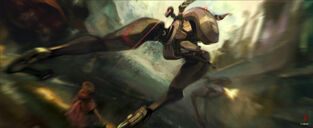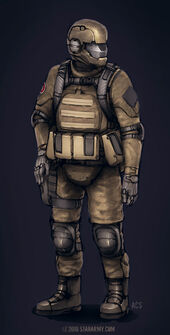No edit summary Tags: Visual edit apiedit |
(Adding categories) |
||
| Line 14: | Line 14: | ||
[[Category:Factions]] |
[[Category:Factions]] |
||
[[Category:Independent]] |
[[Category:Independent]] |
||
| + | [[Category:Theocracies]] |
||
Revision as of 08:55, 6 December 2018

Even though Cygnaran law governing the Protectorate forbids the assembly of a standing army, the treaty contains a clause allowing a capable defense force—the Menites have done so a hundredfold. In the decades following its inception, various leaders have slowly amassed a secret army under the guise of this defense force more or less under the watchful eye of their neighbors. Every Sul-Menite is expected to be ready for the call to arms, and it is their holy duty to prepare. The laws of Menoth far outweigh those of any mortal king. In truth, the Cygnaran spirit resting in the hearts of its soldiers is the military’s true strength. Even after massive losses over the past campaign season, so many of them are still eager to take up arms and fight despite the risks. They are more than willing and ready to defend themselves and their beloved kingdom from those who would crush the principles of freedom and all for which Cygnar stands. The general populace must obey any ordained priest in addition to any other servant of the Temple. Priests generally defer to scrutators, but both have greater authority than the exemplars or monks who in turn wield more clout than paladins or the Temple Flameguard. However, even the lowest-ranking Flameguard can demand obedience from a Protectorate citizen. It should also be noted that members of a military group do not obey the commanders or superiors of a different group except at the special behest of a ranking priest or scrutator. For example, an exemplar cannot normally give orders to a paladin or a monk, regardless of rank. Menoth was a designated as a Separatist faction by the Allies during the Gi'ru Conflict.




